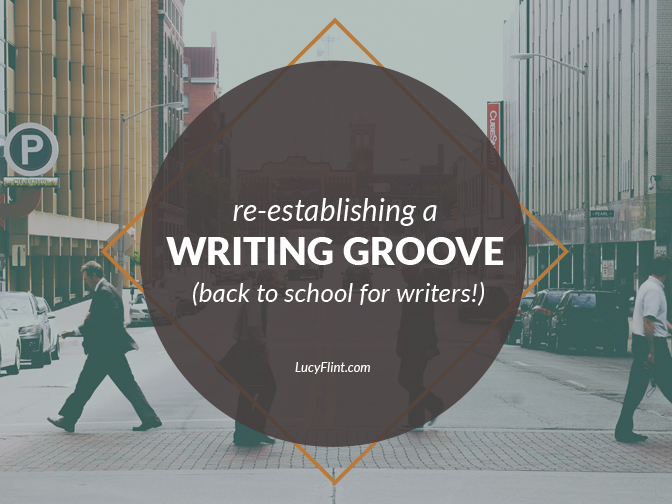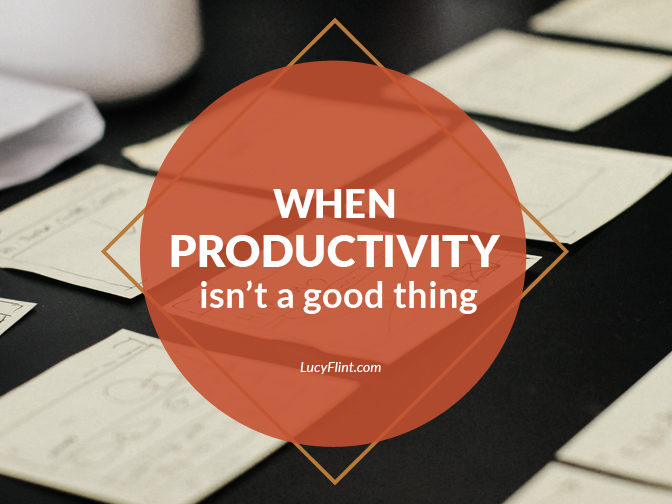The Worst Thing I Ever Did for My Writing
/This post is all about me trying to keep you from getting hit by a bus. Okay? So if I get my serious voice on, that's why. I love you and I want to keep you from being writerly roadkill. All right?
This is one of the absolute worst pieces of writing advice that I ever received. And, I'm ashamed to say, I acted on it:
Just before I started writing full time, an acquaintance of mine--a talented, experienced writer--told me that I should be able to write a novel in a year.
Okay. Here's the truth in that: Many professional novelists can and should create a novel in a year. If novels are what put food on your table, it's a really good idea to write one a year at least.
But for someone who is just starting to learn about novel writing, this is HOWLINGLY TERRIBLE advice.
Especially if that new writer is also a high achiever, perfectionistic, Type A sort of person. One who is full of terrors and insecurities about her own legitimacy. Who isn't sure she should be "allowed" to write full time.
This is very bad advice for that sort of person.
This is one of the beliefs that most crippled me as a writer.
I started writing full time in an absolute panic. I was desperate to prove myself. And I had that advice of hers hanging over my head. I had to crank out this novel.
It took me much too long to let go of that belief. Embarrassingly long.
And as a result, I've been learning to write a novel completely backwards.
I can't tell you how badly I wish I could time travel back to see my terrified pre-graduation self.
I'd sit that version of me down in a chair, probably pour some coffee down her throat, and then force her to take notes while I tell her this: Don't try to write one word of an actual novel for at least six months. Maybe even for a whole first year.
Instead, do a bunch of quality writing exercises, I'd say. Give yourself a starting time for your work day, and stick with it. Write exercises for an hour each day. Work up to two.
Fill the rest of your writing days like this: read books on craft, read about how novelists think, and how to build a writing life. Read hundreds of novels.
And then jot down great and crazy and terrible ideas for novels and characters and situations and settings. IDEAS. Don't try to write the novels themselves.
I would tell her, very seriously: Give yourself time to adjust. Time to learn about this life. To learn about novels. Learn about the underpinnings of structure, about the crazy mystery of it all, and how full-time writers think.
Learn about creativity, get yourself a good non-fiction reading habit, become a kind boss to yourself, and start getting rid of your perfectionism and your envy.
GOSH.
That would have transformed my writing career.
Instead, I wasted years and years trying to create a publishable product before I understood the basics of how novels actually work.
Before I even knew--truly knew, not just assumed--what kinds of novels I even wanted to write.
I bolstered my belief in this lie every time I heard about publishing wunderkinds, about writers my age or younger who were publishing quality stuff.
I'd go back to what that acquaintance said, stare at a calendar in despair, and then go back to my study and thrash around.
Nauseating, right?
YEARS. OF. THIS.
Well, I can't go back and change that terrified kid's mind and convince her that she needed to grow into this.
To tell her--convince her!! brainwash if necessary!!--that by trying to cut to the end, she was actually giving herself a lot more work, heartache, despair, and bitterness.
So can I at least convince you?
Please, please, please. Take the time to learn about novels and writing and your own amazing mind. Do not aim, at the start of your career, at agents and publication. Not immediately. Not yet.
First novels are allowed to be terrible! They are allowed to be awful, wonderful, ramshackle things! They can take a long time to learn to write! They are supposed to sit proudly in drawers with all their battle scars, as proof that you are a learning, growing writer.
They are not required to be written breathlessly in your first year. And first novels are not required to make you tons of money, fame, glowing reviews, screaming fans, and more money.
They are only required to help you lay a solid, true, healthy foundation for your writing career.
Okay?
If you think you're an exception to this: well, you might be.
But just so you know (and even though it makes me CRINGE): I was convinced I was an exception too.
And I stayed convinced in the face of a lot of warning signs.
I thought that my job was to crank out my first (amazing, best-selling, award-winning, money-making) novel in a year. I thought that was what I was supposed to do.
But here's what I know now.
My job, for at least that first year, was to learn what made a great novel great, what made a bad novel bad, and how to work every single day. My job was to get into the habit of coming up with lots of wild and wonderful ideas and to write down those ideas.
My job was to create a system of habits that named me a writer.
Without reference to publishing, agents, reviews, or awards.
My job was not to write a novel in a year.
If you are new to this, please give yourself time to learn. A LOT of time. Plenty of grace-filled time.
Commit to learning deeply. Learn how your brain works, let yourself write a zillion exercises, explore the kinds of themes that bubble up. Surprise yourself.
Don't be driven by what you imagine you should write or how quickly someone else says you should.
There will be time, later, for professional speed. There will be time to write faster.
There will be plenty of time for you to prove yourself. You'll get there.
But it is silly, pointless, and so heartbreaking to try to do that first thing.
















